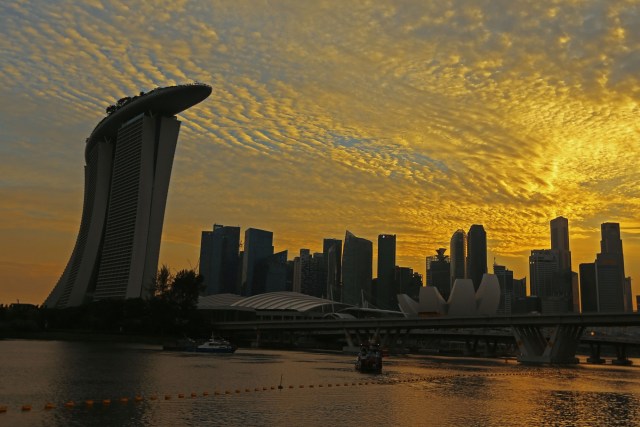
Supporters of Brexit – especially ‘hard’ Brexit – are sometimes accused of wanting to turn Britain into Singapore.
The idea is that, free of EU legislative constraints, a right-wing Conservative government would slash spending, cut taxes and rip-up regulation.
Though they’re not in a majority, the Conservative Party does have its free market fundamentalists who’d love to do all of those things – but why is Singapore held up as the model?
It’s a question that Matt Bruenig asks in a piece for the People’s Policy Project. He begins with the conventional answer:
“In the Heritage Foundation’s Index of Economic Freedom, Singapore ranks as the second most ‘economically free’ country in the world just behind Hong Kong.”
A small island nation of about 5 million people and very few natural resources, Singapore is now one of the richest countries in the world and a centre of global free trade. But is it really “one of the closest countries to the capitalist ideal”? Not if you equate capitalism with the private ownership of capital:
“The Singaporean state owns 90 percent of the country’s land. Remarkably, this level of ownership was not present from the beginning. In 1949, the state owned just 31 percent of the country’s land. It got up to 90 percent land ownership through decades of forced sales, or what people in the US call eminent domain.
“The Singaporean state does not merely own the land. They directly develop it, especially for residential purposes. Over 80 percent of Singapore’s population lives in housing constructed by the country’s public housing agency HDB. “
And there’s more than property in the state’s investment portfolio:
“…there are the state-owned enterprises, which they euphemistically call Government-linked Companies (GLCs). Through its sovereign wealth fund Temasek, the Singaporean government owns a large share (20% or more) of 20 companies (2012 figure). Together these companies make up 37% of the market capitalization of the Singaporean stock market.”
Bruenig calculates that if, relative to GDP, the US government had matched Singapore in building up a sovereign fund, then it would be worth $12.4 trillion. That’s not quite as big as the US national debt, but it’s in the same ballpark.
For these and other reasons, Bruenig believes that Singapore has been misrepresented:
“Call me old-fashioned, but I don’t generally associate state ownership of the means of production with capitalism.”
On the other hand, the Singaporean state spends a remarkably small proportion of the country’s GDP – less than 20% in 2017. That’s roughly half US or UK state expenditure levels.
As for Singapore’s sovereign wealth, is a government that builds-up assets less capitalist than one that runs-up debts?
I would say not – especially when those assets are accumulated in the process of making strategic investments in the country’s economy – something that Adam Smith, the father of free market economics, was entirely cool with.
And where land is in short supply, public ownership may be the best of way of stopping rentiers using monopoly control of that supply to suck value out of the productive part of the economy. After all, it’s not as if private ownership of land helps to make any more of it.
When the state acts to make markets work better, we shouldn’t regard that as anti-capitalist. An enterprise economy should be one in which everyone is enterprising – including the government.










Join the discussion
Join like minded readers that support our journalism by becoming a paid subscriber
To join the discussion in the comments, become a paid subscriber.
Join like minded readers that support our journalism, read unlimited articles and enjoy other subscriber-only benefits.
Subscribe